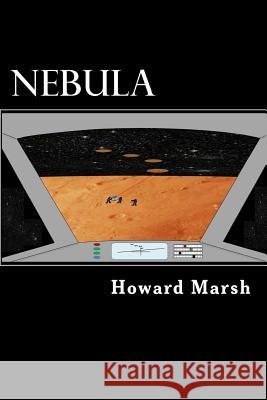Nebula » książka
Nebula
ISBN-13: 9781493796571 / Angielski / Miękka / 2014 / 316 str.
When information is buried deeply in the black, it soon may be lost to the very governments that first held it. Such is the case for three incidents of alien spacecraft arriving on Earth in the mid Twentieth Century. But the information was not lost, only removed from government control and brought into a very secret organization that would work for many decades to prepare for the arrival of an alien fleet that they knew was coming to claim Earth for their home.
Nebula tells how this group of scientists, engineers, industrialists, and warriors prepared to defend Earth from a threat that they knew would come. It tells how they built a force to meet the invaders and how they engaged in a war that threatened to destroy both the human and alien races, and it's told in a way that makes it seem real. The science and technology are plausible, with only a few stretches of the imagination. The human and alien strategies and tactics represent the way that human wars are planned and fought, leading to a conclusion that is very different from the usual ending in a story of alien invasion.
This emphasis on technical and operational realism reflects the author's background as a physicist and defense scientist. The technology is mostly an extension of our current capabilities, amplified by several orders of magnitude but still based upon current scientific principles. The one exception is a fictional ability to control gravity and inertia.
Fans of "hard" science fiction and military action will appreciate the avoidance of implausible fantasy and the focus on almost-real technology and very real strategies and tactics. Readers familiar with science fiction will recall the realistic treatments of authors such as H. G. Wells and Jules Verne, but set in the Twenty-First Century, with our modern technology as its basis.
The principal character is a professor who is drafted into a secret project and evolves from a relatively introverted scientist to an active participant in a small team that plays a central role in a strategy to defend Earth. He joins the team and finds that they have been developing spacecraft and weapons based on alien technology discovered many decades ago, when a reconnaissance ship crashed on Earth. They are attempting to develop and deploy systems that can confront the invasion fleet, which is expected to arrive in less than one decade. But that estimate turns out to be very wrong, and the advance elements of the fleet appear much sooner, forcing Earth's defenders to accelerate their efforts and prepare for battle.
The defenders use technical intelligence, surprise, and deception to counter the invaders' military superiority, and the outnumbered Earth spacecraft are able to prevail against the larger and more powerful alien warships in several intense battles. But each tactical victory results in losses that cannot be sustained for much longer, and the conflict moves to a conclusion that was not anticipated by either side and that reflects the way that rational beings might respond in such an untenable situation.
Intertwining of history, UFO legends, and plausible technology gives the impression of real events that will lead to a confrontation with an alien species sometime in the mid to late Twenty-First Century. In fact, several readers who are familiar with the author's professional background wondered if this was just fiction or if it was based on some of the classified work with which he was involved during his forty year career. The answer, of course, is that it is totally fictional, regardless of how plausible it may seem. Nevertheless, in the end, readers may be left with a sense that something of this sort may be happening even now, especially if some stories of UFOs are based on fact.
Zawartość książki może nie spełniać oczekiwań – reklamacje nie obejmują treści, która mogła nie być redakcyjnie ani merytorycznie opracowana.











